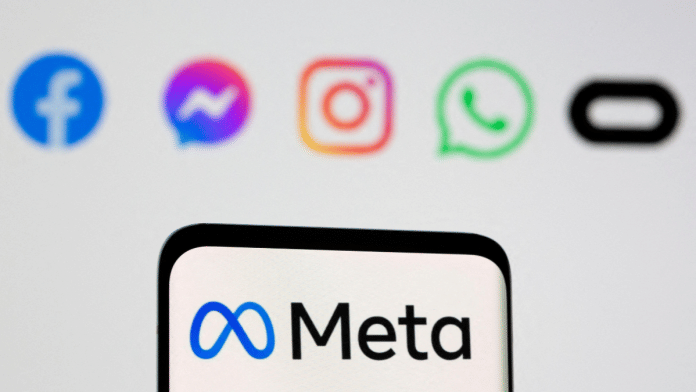New Delhi: Disinformation experts have criticised Meta’s decision to replace third-party fact-checking programmes in the US with “community notes”.
Announced Tuesday, the move, starting in the US, means Meta will no longer rely on independent fact-checkers for Facebook and Instagram in the US. Instead, it will adopt a system similar to X (formerly Twitter), where users can comment on posts to flag inaccuracies or provide context. It is unclear when or if this will be implemented in India.
In a video message, CEO Mark Zuckerberg said that it was “time to get back to our roots around free expression”, alleging that fact-checkers were “too politically biased and have destroyed more trust than they created”.
Under its third-party fact-checking programme, Meta worked across various countries with independent and certified fact-checkers, who identified, reviewed and rated viral misinformation across Facebook, Instagram and WhatsApp. The distribution of content flagged was reduced and it was labelled accordingly. Only content violating the platforms’ Community Standards was pulled down, according to Meta.
Among the new measures announced Tuesday, Meta said it will lift restrictions on mainstream topics that draw controversy, including immigration and gender, while focusing on penalising only illegal and high-severity violations. It will also take a more personalised approach to political content, allowing people to see more such content on their feeds if they want.
The announcement is seen as a move to improve relations with US President-elect Donald Trump before he takes office later this month.
Experts said it could lead to an increase in both misinformation and disinformation on the social media company’s platforms. According to its second-quarter earnings for the 2024 financial year, 3.27 billion people use at least one of its apps—Facebook, Instagram and WhatsApp—every day.
Though a significant development, Rohit Kumar, founding partner at the public policy think tank The Quantum Hub (TQH) Consulting said the implications of this shift for India and the upcoming elections remain “unclear”.
Delhi Assembly elections are scheduled for 5 February.
Kumar said that the Indian law continues to require platforms to exercise due diligence to curb the spread of misinformation. “Additionally, Meta has key partnerships with the Election Commission of India (ECI) to ensure safer online electoral discourse. Given the ECI’s proactive approach in implementing such mandates, it will be crucial to observe how Meta balances its revised policies with its commitments in India.”
Also Read: Meta to appeal India’s CCI order on data sharing restrictions, faces $25.4 million fine
‘IT laws shield social media platforms’
Kumar highlighted that social media platforms enjoy safe harbour protection under Information Technology (IT) laws in both the US and India, meaning that they are shielded from liability not only for user-generated content but also for their efforts to moderate content to keep platforms safe for users.
Like other social media platforms, Meta has so far relied on the good-faith effort provision to moderate user posts, he said. Its moderation system is centred around algorithmic identification, trusted flaggers, and fact-checkers who identify problematic content and verify its accuracy before taking it down.
According to US law, social media platforms cannot be held liable if they make “good-faith” efforts to moderate objectionable content.
“However, as this system has evolved, it has faced criticism of bias, with accusations from some quarters that it disproportionately targets and suppresses conservative viewpoints while allowing more liberal or progressive content to thrive. The issue gained prominence after Trump’s deplatforming by Facebook and Twitter following the 2020 US election, when he was accused of inciting his followers to storm the US Capitol building,” he noted.
Despite these pitfalls, Kumar said, focusing only on illegal and high-severity violations could lead to a significant increase in the volume of misinformation (false information), disinformation (false information with malicious intent), and hate speech, particularly around contentious political issues such as immigration, rights of refugees, LGBTQ rights, vaccination and religious bigotry.
“Mark Zuckerberg has himself admitted that changes to the way Meta filters content would mean ‘we’re going to catch less bad stuff’”, Kumar told ThePrint.
‘Effectiveness of community notes untested’
The TQH Consulting founder also said that the effectiveness of the Community Notes initiative remains unproven and it is unlikely to serve as a sufficient alternative to proactive moderation.
Pranav Bhaskar Tiwari, senior programme manager at tech policy think-tank The Dialogue said Meta’s decision reflects a significant policy shift towards prioritising free expression, while maintaining safeguards against illegal activities like terrorism, child exploitation, and fraud.
“Unlike in India, where free speech rights are subject to reasonable restrictions, Americans enjoy robust protections under the First Amendment,” Tiwari told ThePrint. “Meta’s move to scale back institutionalised fact-checking aligns with this context, empowering users to express themselves freely and exercise their right to access diverse information—key pillars of democratic engagement.”
The Community Notes approach, he said, offers subtle, user-driven moderation, where users have the freedom to decide whether to engage with the flagged content, fostering a less restrictive and more participatory digital environment.
“This pivot also signals a departure from earlier practices of limiting civic content through shadow bans or stringent community guidelines,” he said.
“Civic posts on topics like politics, elections, and social issues which were previously suppressed, will now receive equal visibility, adjusted to individual user preferences through engagement metrics such as likes and views. While this enhances users’ right to receive information, there will be a necessary learning curve as personal recommendation algorithms adapt,” he added.
While illegal content will be strictly controlled, Tiwari said the community feedback model demands robust safeguards for contextually harmful content—particularly to protect minors from potentially harmful content.
“As the Community Notes initiative matures, Meta must ensure that content to particular political leanings does not flood the platform. Meta must ensure nuanced protections as it implements this bold new vision,” he added.
Kumar said some countries were already experimenting with alternatives, encouraging platforms to redesign features rather than simply focusing on content takedown and moderation. This approach may gain traction as a viable tool in the near future.
(Edited by Sanya Mathur)






